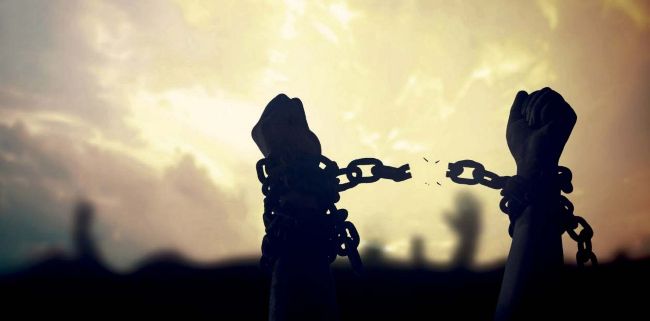Power and powerlessness
In his series considering themes of slavery, the Rev Richard Baxter emphasises the importance of grace.

Photo: iStock
SURPRISINGLY often, people who seem to others to enjoy the utmost freedom are actually the ones who are enslaved. There is the highly-paid executive hating his job but trapped by salary and status into retaining a soul-destroying post.
There is the celebrity who seems to have it all, yet cannot walk down the street, go to a shop or meet a friend without photographers and reporters following her every move.
There is the politician desperate to make a real diff erence, but trapped by party allegiance or electoral arithmetic into accepting that which he knows is a destructive path.
The writer of 2 Kings tells us an enlightening story about power and powerlessness. (2 Kings 5.1-19) The story centres on two people apparently from opposite ends of the social spectrum. Naaman is a Syrian general. He is rich, powerful, successful and well-connected.
The other person is a slave, a little girl who has been taken as a prisoner of war and put to work in Naaman’s house. As a slave, a foreigner and a woman, she was at the bottom of the heap in terms of power in her society. Even in the story, she is not dignified with a name. The little girl may be a slave far from home,
but she knows what Naaman does not.
She knows that healing comes from God, so God’s messenger Elisha is Naaman’s only hope. Convention and protocol say she should be silent, but she speaks up boldly.
She is not free to choose her own destiny, but she is free to use her knowledge of God to make a crucial diff erence by speaking the truth. Perhaps having so little to lose gives her the courage and freedom to suggest Naaman’s journey of hope.
Naaman, by contrast, is at least as much a slave as the girl. He is enslaved by a health condition he cannot change, for he has leprosy. His wealth cannot buy a cure, his power cannot demand it, even from a king. Protocol requires him to ask the Syrian king for permission to seek help. Tradition and convention lead him to travel loaded with rich gifts to another royal palace where no cure can be found.
Even when Naaman is eventually redirected to Elisha’s shabby hut, he remains a prisoner of his pride, which almost prevents him from following the advice passed on by the prophet’s servant. It is only when Naaman allows himself to be freed of his prejudice, his self-importance and his vanity that God sets him free from his illness.
Sometimes the biggest barrier to our freedom is our insistence that we expect to be free with our dignity intact and our self-esteem untouched. When we come to the cross, seeking Christ’s love and grace and forgiveness, we come with nothing in our hands, and we rely on nothing but his goodness and mercy. That’s why Paul insists that it is the free gift of grace that puts us right with God, leaving us nothing to boast about. (Romans 3.21-28)
When we need God’s help, we may need to be freed from our pride, our selfsufficiency or our fear of seeming weak to others to be ready to accept it. But Paul’s words in 2 Corinthians 12.9 express the truth – “My grace is all you need. My power is made perfect in weakness.”
The Rev Richard Baxter is minister at Fort William: Duncansburgh MacIntosh linked with Kilmonivaig